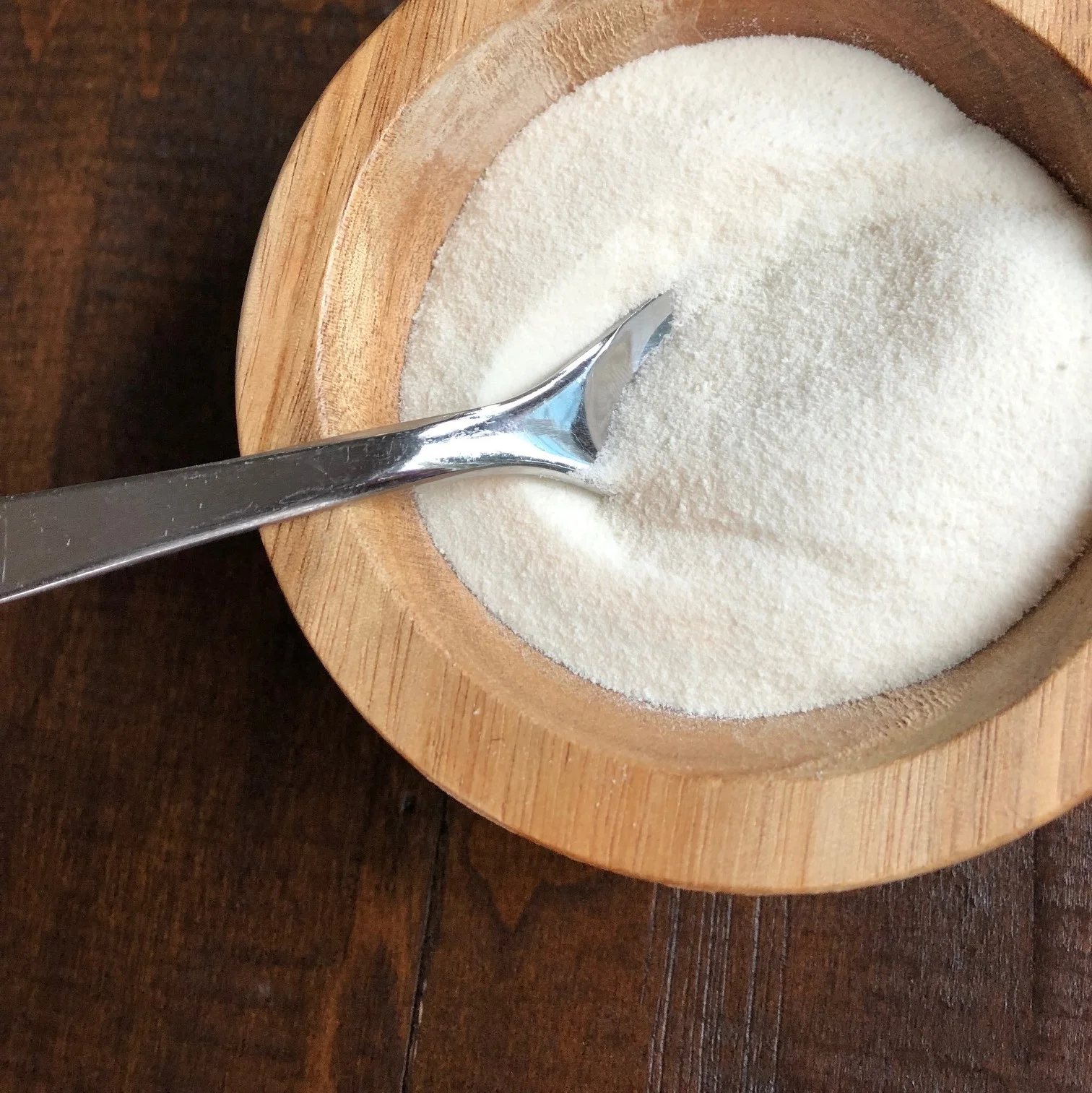Depending on the type of workout you are doing and how long you work out you can really optimize your recovery and replenish your body with the right nutrition.
The HTMA is a valuable tool for assessing mineral status, nutritional imbalances, heavy metal toxicity, and metabolic dysfunctions. By analyzing hair tissue samples, HTMA provides comprehensive insights into various aspects of health and can guide personalized protocols to optimize your well-being and address underlying imbalances and deficiencies.
g and detox are always super trendy in the wellness world, but many go about it the wrong way and end up feeling worse than before or their detox is unsuccessful. Some say that our bodies naturally detox on their own, but given all the toxins we are exposed to daily, most of us do need some support in this department these days, especially if we tend to be on the sensitive side or have a fair amount of healing to do (from things like chronic infections and parasites, mold, metals, and environmental toxins. Drainage is the process by which we can detox, and ensuring your drainage pathways are functioning properly should be the first step in any detox or healing protocol.
Muscle Testing, also known as muscle response testing or applied kinesiology, is a fascinating and long-used technique in holistic health and wellness used by many types of practitioners including chiropractors, acupuncturists, naturopaths, massage therapists, and nutritionists. It came about from a concept in neuromuscular physiology where muscle responses were observed after exposure to stimuli. Our muscles communicate with us when the body is attracted to a stimulus from either a positive or negative source.
Our gut microbiome plays a crucial role in digestion, immune function, and overall well-being. No matter how well we take care of ourselves or how healthy we are, there are times when we need to resort to antibiotics to combat infections and illnesses. While antibiotics can be life-saving, they can also disrupt the delicate balance of our gut microbiota, potentially leading to other digestive issues. In this post, I will explore what you can do to support and protect your gut health when you have to take antibiotics.
Blood sugar regulation is one of the foundations of health I work on with my clients. In case you were wondering, the other foundations include a nutrient-dense diet, digestion, hydration, minerals, fatty acids, sleep, and stress management. I find that MANY of my client's symptoms and complaints are quelled when we work on blood sugar regulation. Dysregulated blood sugar in the form of insulin resistance and pre-diabetes is one of the most common things I see in the people I work with.
Improving your gut health doesn’t necessarily mean taking the latest fancy, expensive probiotic or making drastic changes to your diet. While sometimes a gut healing protocol with therapeutic supplements is needed to bring your gut health back to balance, it isn’t always the case. Sometimes you can work on healing your gut by adding in a few habits or modifying some of the things you are already doing.
Simply put, bloating is just excess intestinal gas. The feeling can range from uncomfortable to pretty painful. It usually resolves on its own after a period of time after eating, but if you’ve got something going on with your digestion, it is probably coming back pretty regularly. Most of the time bloating happens because of some sort of dysfunction in the gut, but it can also happen when you have a food sensitivity or intolerance, or for women, around their menstrual cycle.
One of the reasons why I focus on digestion and gut health is because it is a foundational component of overall health. When we look at the body holistically, poor gut health is associated with MANY chronic conditions, diseases, and symptoms. Healing usually requires more than working on your gut health, but it can definitely be a big piece of the puzzle.
Parasites are everywhere and are already within us. They can live within our bodies for years without causing any symptoms so we don’t realize they are causing a problem, but they can become overgrown in the body. When they do cause symptoms, it is our body’s way of crying out for help that the parasites have become too much, and our immune systems as well as the tissues and organs they are living in need our help.
I generally recommend working with a trained practitioner when trying to parasite cleanse. It isn’t always straightforward. Additionally, unless you improve upon what is making you susceptible in the first place, the parasites will likely just return.
The key to starting your digestion off on the right note isn’t the latest and greatest superfood or supplement. It is chewing, also known as mastication, and it’s the first and maybe the most important step in the digestive process. The way you chew and how long your chew, can significantly impact your digestion and your health in general.
When your gut is in a good place, exercise can play a role in maintaining microbiome diversity in the gut, promoting better energy and mood, and a stronger immune system. It can also aid in getting your digestive fire moving, supporting the entire digestive process so that you are moving out toxins and pooping daily.
Our skin is actually our largest organ. It is important because it is our first line of defense against the physical, chemical, and microbial challenges in our environment. The skin hosts millions of bacteria and just like our gut microbiome, can become compromised and imbalanced and present this in a number of ways.
Simply put, fat is essential to the proper function of our hormones, our immune system, and our cells. It is the main building block in the production of each and every hormone in our body. This is so important! Hormones are key messengers that control our mood, energy levels, brain function, appetite, satiety, stress response, balance organ function, inflammation, immune function, and repair signals all across the body.
So many of my clients come to me with complaints of daily energy issues and mood imbalances. Stress plays a massive role in how we feel and while it is definitely challenging to reduce ALL of the stress in our lives, there are definitely some things we can do to help support our body in how it deals with stress. Here are some helpful strategies that you can implement on the nutrition side that can also help with stable blood sugar and cortisol, leading to better energy and a more stable mood throughout the day.
I get asked all the time how I support myself and my family during cold and flu symptoms. Here are the items that I keep stocked in my cabinet throughout the season. Check back often as I will add to this list as I find new tools.
Constipation is SUPER common, but it isn’t normal. I was always told that a bowel movement every day isn’t that important, but once I learned about how digestion works and what the body’s objective is in pooping (removing waste and toxins from the body!) I realized that we really should be pooping every day, at least once a day and up to two or three times.
These days many of us have some level of leaky gut. A leaky gut isn’t a root cause of the symptoms you might be feeling, but it is a symptom itself. When clients come to me with digestive symptoms, signs of inflammation, food sensitivities, and blood sugar imbalances, we typically will work on gut healing as part of the protocol. A leaky gut usually isn’t the problem itself, but a byproduct of the problem and can be problematic for the body.
Sleep is easily one of the most important components of our health. It plays a vital role in our physical and mental well-being. Getting enough sleep gives your body more time to heal and repair from today so you perform better and are revitalized for tomorrow.
Collagen is one of the most abundant proteins in the human body and the amino acids that make it up are essential building blocks in supporting the integrity and structure of our skin, bones, tendons, ligaments, muscles, blood vessels, and teeth as well as the entire gastrointestinal tract lining. As we age, our body gradually produces less. It is pretty different for everyone, but genetics, stress level, diet, smoking, age, and sun exposure may all influence how much we are producing.
The health of your digestive tract isn’t just about the food and drink we are consuming. Digestion is one of the most important and resource-intensive processes our body goes through on a daily basis and requires a lot more than just eating the right foods. A lot of things have to be going right for our gut to be strong and functioning how it should.
Whether you are intending to or not, not eating enough is a stressor to the body which can actually slow your metabolism, and dysregulate blood sugar and cortisol causing even more stress to the body. Also, not eating enough pretty much guarantees that you will be undernourished which means that your body isn’t getting the nutrients it needs to function optimally.
Protein gets a bad rap these days. Some say we are generally eating too much protein and others will say that we are not eating enough. Considering how satiating protein is, I think it is pretty hard to overdo it. When it comes to my clients, I think many are generally not eating enough of this crucial macronutrient.
There is a ton of fear and villainization of carbohydrates (“carbs”) out there and a lot of conflicting information. Some label all carbs as bad and others differentiate between “good” carbs and “bad” carbs. The purpose of this post is to cut through the dogma and get to the real truth about whether or not you should be eating them.
As a Functional Nutritional Therapy Practitioner (FNTP) I take a holistic, foundational approach to my client’s health, looking at the big picture and diving deeper into areas that are out of balance to encourage the body back to a place of homeostasis or balance. We believe that they symtoms that our bodies present are messages our bodies are sending us crying out for help and telling us that something isn’t quite right.
If your gut just needs a little extra nourishment after a bout of food poisoning, a stomach bug or just eating out of your normal routine for a while, it’s a great idea to incorporate some gut-loving and supportive foods into your diet.
An Emotion Code session is an energy healing modality that involves a gentle, non-invasive, and safe approach to finding and releasing negative trapped emotions in the body.
The Emotion Code is an energy healing technique designed to communicate with the subconscious mind to identify and release trapped emotions—harmful emotional energies from negative past events.





























Using the right oils for cooking and consumption can make a big impact on your overall health. Oils and fats are not all created equal. Some are natural and nutrient-dense. Others are man-made and toxic to our bodies. Some are robust and can stand up to high heat, others are fragile and break down easily, causing them to lose all of their nutritional properties. Read on to learn how you can make sure you are consuming the right fats and oils for the best health.